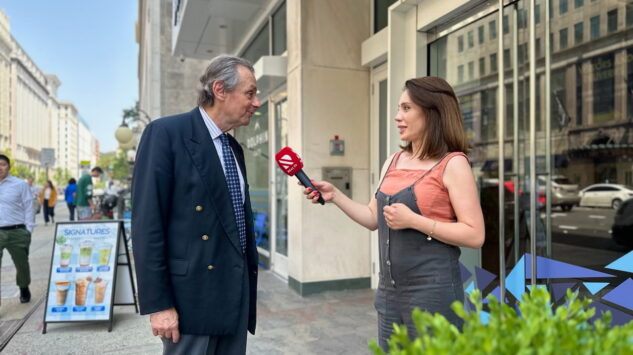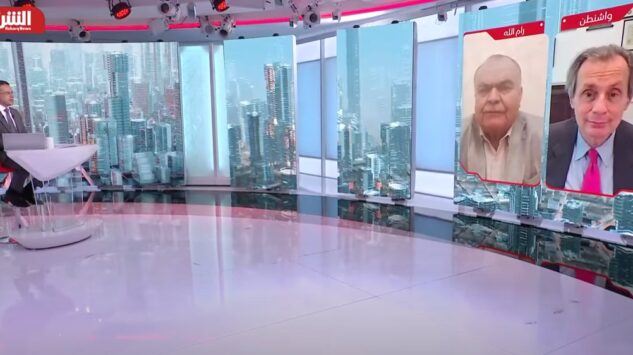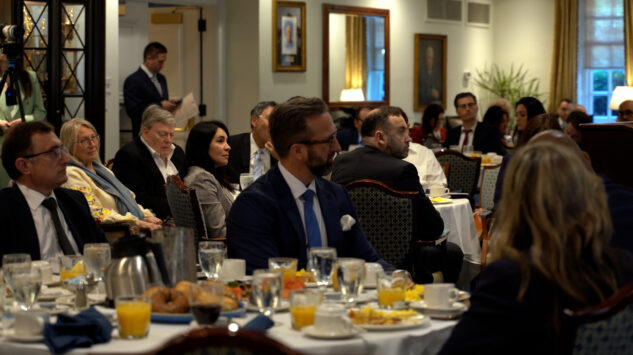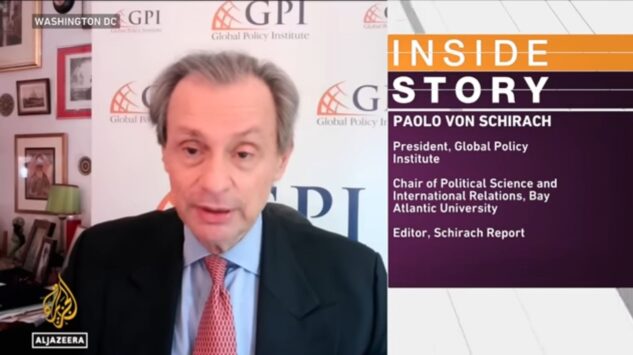News
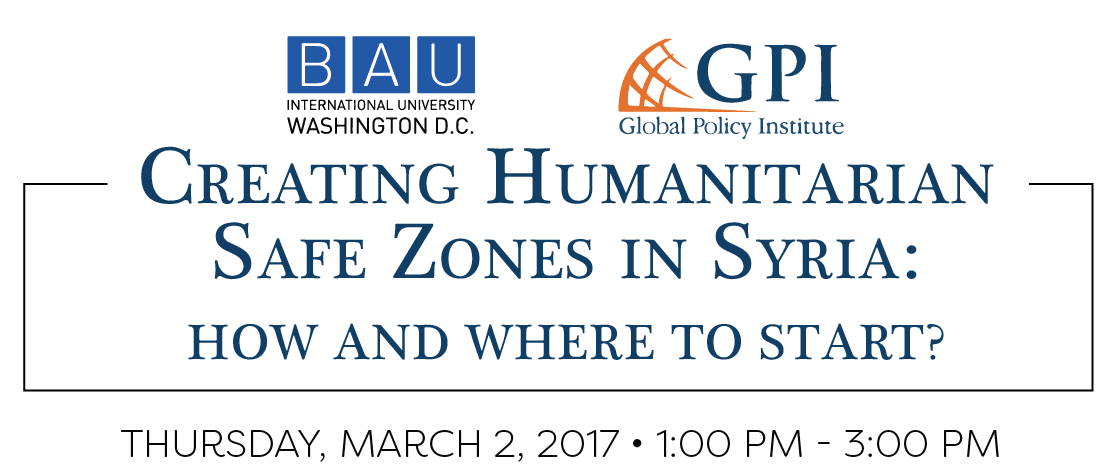
As the Trump Administration is beginning to develop policy options aimed at creating Safe Zones that would offer sanctuary to internally displaced Syrians and to other Syrians who found temporary refuge in neighboring countries, it is important for America to engage in a dialogue with Turkey and other of Arab countries with the objective of creating a common strategy regarding “Humanitarian Safe Zones” in Syria.
Washington, DC based BAU International University and the Global Policy Institute, convened a panel of experts with the goal of contributing to the effort now underway to set up the parameters for this important dialogue and for discussing the policy options on how such Safe Zones could be established and who should be protecting them.
The event was introduced by BAUI President, Dr Sinem Vatanartiran and GPI President Paolo von Schirach.
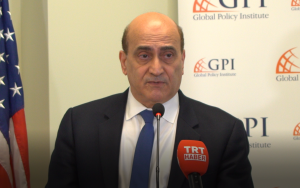
Dr. Walid Phares
Dr Walid Phares, Vice President of BAU International University, and a foreign policy advisor to Donald Trump during 2016 Campaign, moderated this high profile event which attracted international media and participants from various Embassies, including the UK, France, Russia, Turkey, Lebanon, and congressional offices. A panel of seasoned U.S. and Turkish experts laid out the contours of this complex strategic and humanitarian problem. Dr Phares outlined the most important questions to be raised as discussions about the project are now ongoing. “The Administration and other Governments are now studying the plans to allow such zones to be established. However, there are many important challenges. One is where to establish them, two is who will manage them, three is who will fund these zones, and last but not least, is there a regional and international consensus over this initiative.”
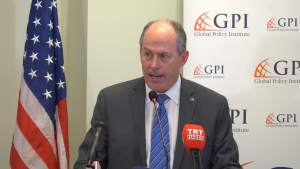
Joseph Schmitz
Joseph Schmitz, a former Pentagon official who also served as a national security advisor to Donald Trump during the 2016 Campaign, indicated that Donald Trump, while still a candidate in 2015, already argued in favor of creating Safe Zones for refugees as a better alternative to camps in neighboring countries or resettlement in Europe or the USA. Schmitz argued that the Trump administration will likely come up with a strategy that is both robust and viable.
Thomas G. McInerney, Retired U.S. Airforce General, and Fox News Military Expert pointed out that the American Government knows how to set up the systems that would protect Safe Zones from the air. The real problem –he said– is to first determine the location, size and necessary protection systems for these Zones.
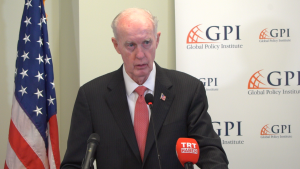
Thomas G. McInerney
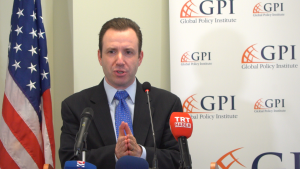
Ilan Berman
Ilan Berman, Senior Vice President of the American Foreign Policy Council, indicated that the parties should find out about Russian interests and goals. While Russia has an ongoing interest to preserve its strategic strongholds within Syria, it also has an enduring interest in mitigating the threat from Islamic radicals.
Dr Burak Kuntay, President of the American Studies Center at Bahcesehir University, and a Global Policy Institute Fellow, pointed out that the international community has a mixed record when it comes to creating and protecting Safe Zones. The record in Iraq, a theatre in which safety on the ground was provided by the US Air Force, in conjunction with the British RAF, is mostly positive. The record in Bosnia is mostly negative. Safe Zones have to be set –Kuntay continued– keeping in mind who is going to be there and who will protect them. Policy-makers should avoid creating new conflicts being careful in determining who will be settled in which area and who will provide protection.
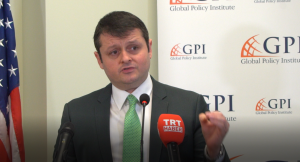
Dr. Burak Kuntay
Several questions from the audience called attention to the additional complications created by the Kurdish issue. Future Safe Zones would probably be created south of the Turkey-Syria border is a region largely inhabited by Kurds. While Kurdish militias (YPG) currently receive American military support because of their willingness to engage ISIL in North eastern Syria, the Ankara government views them as allies of the Turkey-based PKK, a terrorist organization, and therefore enemies of Turkey.
Other questions focused on the willingness of the Trump administration to engage with Turkey on the entire spectrum of issues that are at the source of the refugee crisis: a political solution to the war in Syria, a more constructive engagement with Russia, and a common front vis-à-vis Iran.
Joseph Schmitz pointed out that the relationship between Washington and Ankara was established back in 1947. It was reinforced when Turkey participated in the Korean War and joined NATO. The shared strategic and political interests that bind the two allied nations are strong and critically important to both countries. This foundation allows optimism about the chances of finding common ground and pursuing shared objectives when it comes to the creation of Safe Zones for refugees and working towards an end to the conflict in Syria. Answering a question, Dr Phares said “relations between the US and Turkey are historic and strategic, they cannot and should not be affected by differences of views on any issue.”
Please find the full video of the event here
Please find the photos and press release here
